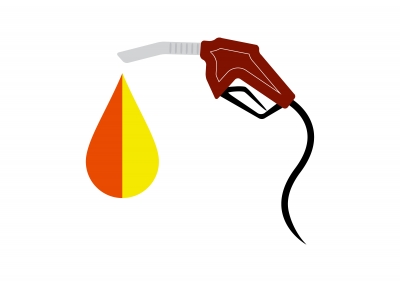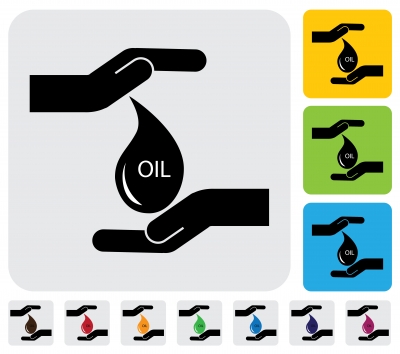Would Jesus drive a diesel?
By John Weaver
 I was asked to reflect on this interesting question. Maybe a better question is: ‘Would Jesus drive any car if he were living in our world today?’ Or would he campaign for more public transport and a consideration of the poorest members of the community, for whom any car would be a luxury?
I was asked to reflect on this interesting question. Maybe a better question is: ‘Would Jesus drive any car if he were living in our world today?’ Or would he campaign for more public transport and a consideration of the poorest members of the community, for whom any car would be a luxury?
The key issue is not only about emissions, although consideration of clean air in our cities is important. It is more importantly about our increasing use of fossil fuels and the effect of the greenhouse gases produced on the climate of our world.
When UN Secretary-General, António Guterres visited the storm ravaged Caribbean in early October he spoke about the scientific evidence that indicated that global warming is leading to more frequent and more intense weather events such as hurricanes Harvey, Irma and Maria, or locally we might add storms like Ophelia and Brian. He urged political leaders to implement the Paris agreement on climate change with greater vigour, stating that ‘we know that the world has the tools, the technologies and the wealth to address climate change, but we must show more determination in moving towards a green, clean, sustainable energy future.’
The science is unequivocal and the situation the world faces is urgent. 2014 was the warmest year on record until 2015, and 2016 was warmer still; in fact 15 of the top 16 warmest years since records began have occurred since 2000. The concentration of CO2 in the atmosphere has exceeded 400ppm (up from 250ppm in 1750) and the average global surface temperature has risen to 1.010C above the pre-Industrial temperature c.1750.
The scientific evidence is undisputed and humanitarian impacts are devastating – especially for the poorer communities in our world – but the political will is overshadowed by the profit motives of global corporations and the desire of political leaders to hold onto power.

It is here that our Christian worldview should come into play with increased concerns for the care of God’s creation, and the marks of justice and fairness in our treatment of the world’s poor. I believe that care of creation is a central part of our Christian discipleship. The following passages from scripture should inform our thinking:
-
The creation command is to care for creation (Genesis 2:15)
-
God’s first covenant is with the whole of creation (Genesis 9:9-11)
-
There is damage to creation and to people’s lives when we break the covenant (Isaiah 24:4-6)
-
God’s intervention in this world in Christ was to redeem the whole cosmos (John 3:16)
-
The call for our discipleship is: to deny self, take up the cross-shaped life of sacrificial love, and follow Christ (Mark 8:34)
-
Creation groans as it waits for human beings to become Christ-like in their lives (Romans 8:18-25)
-
Our hope is in Christ who is creator and redeemer and who holds the whole of creation together and reconciles all things through the cross (Colossians 1:15-20)
A world-view that places Christ at the heart of creation gives us a distinctive set of values. The intrinsic value of the whole of creation comes from being created and valued by God. Christ as the redeemer of creation, and the promise that he holds all things together provides a context of hope for the future of the world and affirms that all of creation is interconnected. Christ’s roles as supreme over all things and head of the church challenge us to make his Kingdom visible on earth as in heaven.
So, would Jesus drive a diesel? Or more relevantly should we be concerned about our modes of transport and the source of our energy consumption? How do we decide about how and where we travel? Is our journey necessary? If the distance is short and we are physically able we can walk or cycle if there are cycle routes or use public transport, where this is available. If we do need to drive a car we can look for one with the lowest emissions, maybe a hybrid or electric vehicle.
For Christians, all decisions we make should be guided by our Christian faith, founded on our ultimate hope, which is in God and is eternal, while human hope is temporal and uncertain.
Therefore in our use of earth’s God-given resources and our care of God’s planet, we should be looking for churches to be a prophetic voice in their communities, where radical Christian discipleship embodies an alternative narrative, which offers hope – expressing an alternative model for all in our society as we pray: ‘Thy kingdom come, Thy will be done, on earth as in heaven’.
Images | FreeDigitalPhotos.net
Fuel Nozzle by lekkyjustdoit
Human Hands Conserving Crude Oil Concep by smarnad
John Weaver is a Baptist minister, chair of the International Baptist Theological Studies Centre, Amsterdam, formerly a tutor at Regent’s Park College Oxford, principal of the South Wales Baptist College and Dean of the Faculty of Theology, Cardiff University, and a former president of the Baptist Union of Great Britain. He is chair of the John Ray Initiative: connecting Environment, Science and Christianity, and his main areas of interest are practical and pastoral theology, and the dialogue between science and faith.
This article first appeared on the website of Contemporary Christianity in Northern Ireland (formerly ECONI), and is republished with permission
Baptist Times, 08/11/2017